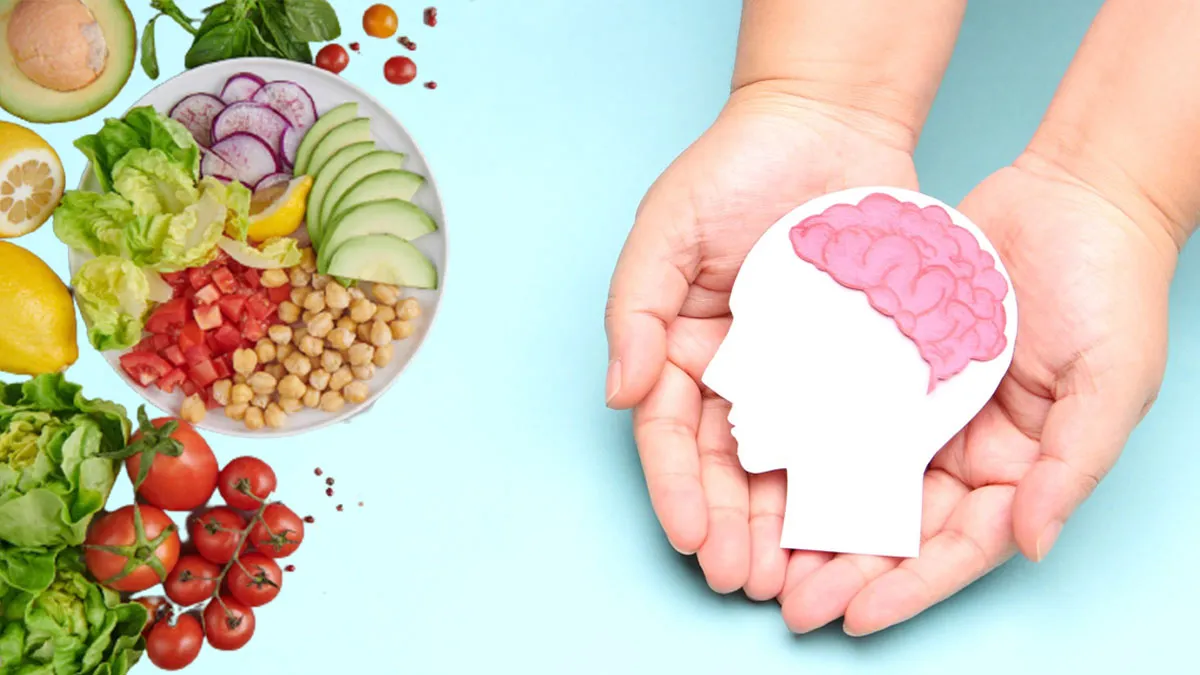
In our fast-paced world, prioritising mental well-being is more crucial than ever. While factors like exercise, sleep, and mindfulness often take centre stage, the profound impact of our diet on our mental state is increasingly being recognised. We sat down with Dr Shweta Jaiswal, Senior Dietician at Shardacare, Health City - Noida, to uncover the specific foods that can nourish our minds and those that might be hindering our emotional equilibrium.
Table of Content:-
"The gut-brain axis is a powerful connection," explains Dr Jaiswal, her calm demeanour instantly reassuring. "What we eat directly influences the neurotransmitters in our brain, the chemical messengers that regulate mood, sleep, and cognition. By making conscious food choices, we can actively support our mental health."
So, what should we be adding to our grocery carts, and what should we consider leaving on the shelves? Dr Jaiswal breaks it down for us:
Eat THIS for a Happier Mind
1. Omega-3 Fatty Acids
Found abundantly in fatty fish like salmon, mackerel, and sardines, as well as in flaxseeds and walnuts, omega-3s are crucial for brain health. "These essential fats have anti-inflammatory properties and play a vital role in brain cell function and communication," Dr Jaiswal emphasises. "Studies have linked adequate omega-3 intake to a reduced risk of depression and anxiety." Consider incorporating these into your diet a few times a week.

2. Leafy Green Vegetables
Spinach, kale, collard greens – these vibrant vegetables are packed with folate, a B vitamin that is essential for the production of serotonin, a key neurotransmitter associated with feelings of well-being. "Folate deficiency has been linked to depressive symptoms," Dr Jaiswal points out. "Aim for at least one serving of leafy greens daily."
3. Whole Grains
Opt for brown rice, quinoa, oats, and whole-wheat bread over refined grains. These complex carbohydrates provide a steady release of glucose, which fuels the brain without the energy crashes associated with sugary foods. "Stable blood sugar levels are crucial for maintaining a consistent mood and preventing irritability," advises Dr Jaiswal.
4. Fermented Foods
Yoghurt with live and active cultures, kefir, sauerkraut, and kimchi are rich in probiotics, beneficial bacteria that support a healthy gut microbiome. "A significant portion of serotonin is produced in the gut," Dr Jaiswal explains. "A balanced gut microbiome can positively influence mood and reduce anxiety."
5. Fruits Rich in Antioxidants
Berries, citrus fruits, and cherries are packed with antioxidants that protect brain cells from damage caused by free radicals. "Antioxidant-rich foods can help reduce inflammation in the brain, which is linked to various mental health conditions," says Dr Jaiswal.
6. Lean Protein
Sources like chicken, turkey, beans, lentils, and tofu provide essential amino acids, which are the building blocks for neurotransmitters. "Tryptophan, for example, is an amino acid needed to produce serotonin," Dr Jaiswal clarifies. "Including lean protein in your meals helps ensure a steady supply of these crucial components."

Also Read: Fertility Under Threat: Microplastics Now Found Inside Human Ovaries, Here's What Women Need To Know
Avoid THAT to Protect Your Mental Well-being
1. Processed Foods
Chips, sugary snacks, processed meats, and fast food are often high in unhealthy fats, added sugars, and artificial ingredients. "These foods can trigger inflammation in the body and brain, disrupt blood sugar levels, and negatively impact mood," warns Dr Jaiswal. "They often lack the essential nutrients our brains need to function optimally."
2. Refined Sugars
Sodas, sugary drinks, candy, and baked goods cause rapid spikes and crashes in blood sugar, leading to energy dips, irritability, and difficulty concentrating. "Consistent consumption of refined sugars has been linked to an increased risk of depression," Dr Jaiswal cautions.
3. Excessive Caffeine and Alcohol
While a moderate amount of caffeine might provide a temporary boost, excessive intake can lead to anxiety, jitters, and sleep disturbances. Similarly, while alcohol might initially feel relaxing, it can disrupt sleep patterns and worsen mood in the long run. "Moderation is key with both substances, and for some individuals, it might be best to avoid them altogether," advises Dr Jaiswal.
4. Artificial Sweeteners
Some studies suggest that artificial sweeteners can negatively impact gut bacteria, potentially affecting mood. "More research is needed in this area, but it's wise to be mindful of your intake," suggests Dr Jaiswal.
5. Trans Fats
Often found in fried foods and some processed baked goods, trans fats have been linked to inflammation and an increased risk of depression. "It's best to eliminate trans fats from your diet entirely," recommends Dr Jaiswal.
Bottomline
Dr Jaiswal emphasises that making gradual, sustainable changes is more effective than drastic overhauls. "Start by incorporating one or two of the recommended 'eat this' foods into your daily routine and gradually reduce your intake of the 'avoid that' items," she suggests. "Listen to your body and notice how different foods make you feel."
While dietary changes can be a powerful tool in supporting mental well-being, Dr Jaiswal stresses that it's just one piece of the puzzle. "A balanced lifestyle that includes regular exercise, sufficient sleep, stress management techniques, and strong social connections is equally important for optimal mental health," she concludes.
By understanding the link between food and mood, we can empower ourselves to make choices that nourish not just our bodies but also our minds, paving the way for a happier and healthier life.
Also watch this video
How we keep this article up to date:
We work with experts and keep a close eye on the latest in health and wellness. Whenever there is a new research or helpful information, we update our articles with accurate and useful advice.
Current Version